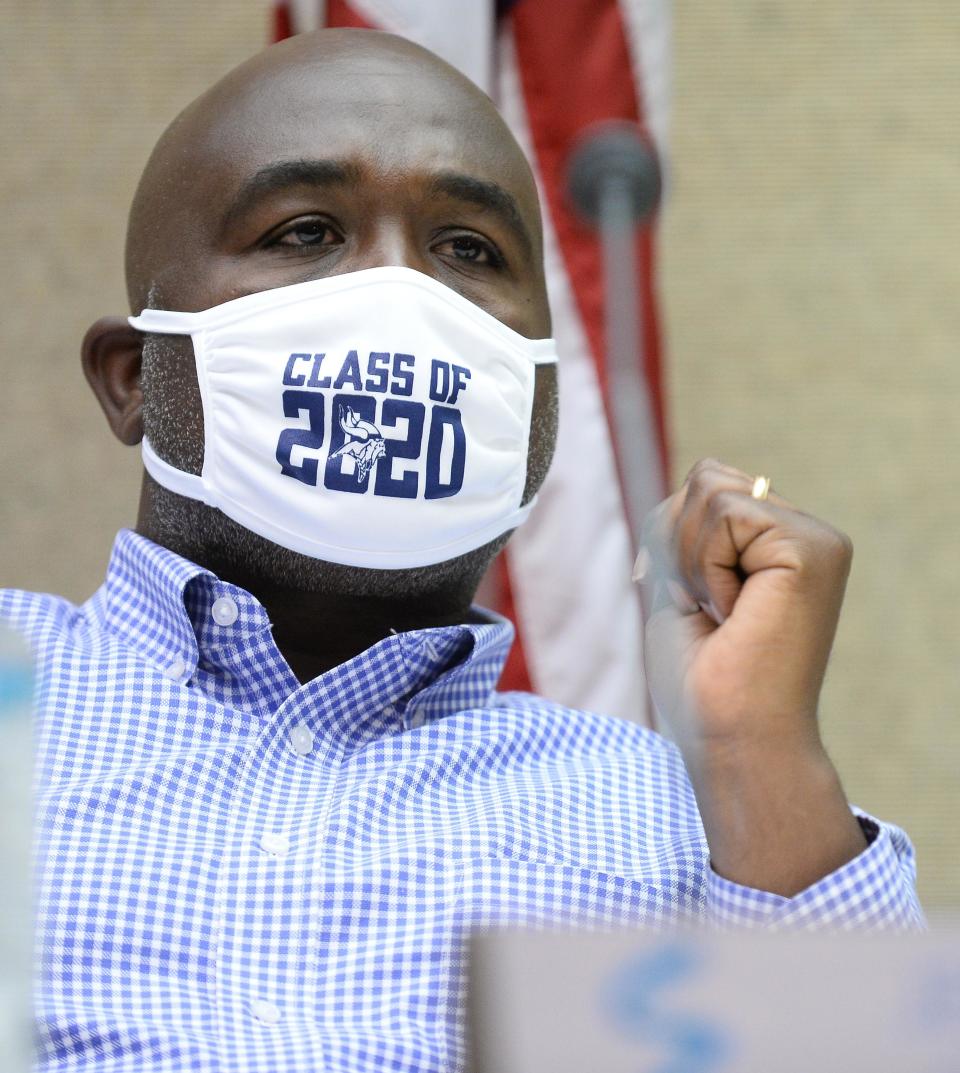South Carolina city apologizes to Black residents for racial injustice resulting from its policies
SPARTANBURG, S.C. - Brenda Lee Pryce has waited decades for an apology from the city of Spartanburg after her neighborhood was demolished during the city's urban renewal efforts in the 1970s.
Urban renewal efforts were meant to demolish blighted areas in cities and create better housing and more opportunities. In many areas, Black families and businesses were displaced and no opportunities were created.
The loss of homes and businesses left Pryce feeling angry and disappointed. When City Council apologized for the failure of the redevelopment efforts Monday night, Pryce became so emotional that it brought her to tears.
The city council unanimously approved a resolution that acknowledges systematic racism and includes an apology to Black residents like Pryce “for racial injustices and long-lasting inequities” that have resulted from past city policies.
What is systemic racism? Here's what it means and how you can help dismantle it

A standing ovation immediately followed the vote.
“I’m just overwhelmed,” said Pryce, a former S.C. Representative who was born and raised in the city’s south side, an area that once served as the city’s Black downtown during segregation. Today, it's a food desert where people without transportation struggle to find basic essentials such as food and medicine.
In the 1970s, the city purchased a lot of the land using federal “urban renewal” dollars. It resulted in the demolition of Black-owned businesses and several Black neighborhoods.
Protests lead to change: South Carolina city budgets $50K for diversity training after backlash over official's posts
“I never thought I’d live to see this apology,” Pryce, 72, said after the meeting. “This means everything to me.”
To city council member Jerome Rice, the words written on that three-page resolution are worth more than anything he’s ever been a part of as a council member.

Not even the newly-finished TK Gregg Community Center, where the council meeting was held, holds as much value as this resolution, Rice said.
“This $15 million facility doesn’t measure up to what’s on this paper,” Rice said. “We are sorry.”
In the resolution, titled “Healing, Reconciling, and Unity. A Pathway to a More Equitable Spartanburg,” the city also pledges to do a better job in the future ensuring that policies and funding decisions focus on racial equity.
The resolution was promoted by Councilwoman Meghan Smith, who pushed for it in an Aug. 10 letter to her council colleagues. In the letter, she cited several examples of times the city has "played a role in systemic racism.”
Monday night, she told the diverse crowd at the meeting, “Tonight, this is for you, and for all who have come before you, who have felt sidelined, disenfranchised and discriminated against.”

Several council members acknowledged that passing this resolution isn’t enough. The next step, they said, is ensuring they uphold the commitments written on the document: To do better in the future ensuring that funding decisions and policies are focused on equity.
“We want you to hold us accountable to the work that needs to be done,” said Councilwoman Erica Brown. “There’s so much more work to be done.”
This article originally appeared on Herald-Journal: Spartanburg apologizes to Black residents for systemic racism


